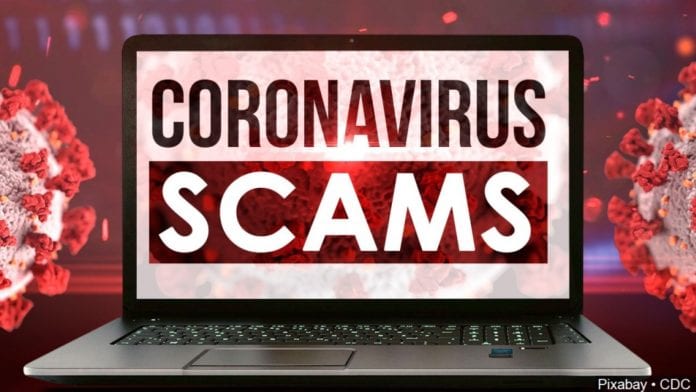Warning consumers about COVID-19 scams, the Better Business Bureau (BBB) notes that it has received reports of Memphians being contacted through Facebook regarding government grants.
In one instance, the consumer saw something offering COVID-19 grants for seniors; in another case, the consumer got a message with grant information.
The alert comes as Congress lurches forward toward a package of stimulus payments/grants. No matter the final product, the BBB says only scammers will consumers to pay to get them.
Here is a reported scam-case scenario: A Memphis man clicked on an ad and was immediately messaged by someone claiming to be the “U.S. Emergency Grants Federation.” They asked for his personal information to see if he qualified.
Sensing a scam, the man said, “I gave them a fake Social Security number and guess what…I qualified.”
A second scam scenario: A Memphis woman got a Facebook message from a “friend” who said she’d gotten a grant designed for seniors to help them deal with the COVID-19 crisis. She called the number her “friend” provided and was greeted by “Officer Julie,” who asked for her personal information, then said she qualified for a $150,000 grant.
“Officer Julie” told the woman she’d get the money after paying $1,500 using prepaid gift cards. According to the BBB, she might have fallen for it, but couldn’t drive to the store to buy the cards and didn’t have enough money in her checking account for the crooks to draft.
“This scam even had a humanitarian twist,” the BBB reports. “She was instructed to keep most of the money for herself and to pass some on to help others.”
And one Memphis man told BBB that he got a phone call regarding “the funding that the president is giving to Americans because of the coronavirus pandemic.” When the caller asked for his personal identification, the man recognized it was a scam and hung up.
The BBB and the Federal Trade Commission offer the following tips:
- The government is putting together a stimulus package that should include checks or deposits to individuals. However, they will not ask you to pay anything up front to get this money. No fees. No charges. No nothing.
- The government will not call to ask for your Social Security number, bank account, or credit card number. Anyone who does is a scammer.
- These reports of checks aren’t yet a reality. Anyone who tells you they can get you the money now is a scammer.
- Don’t give out your bank account information to anyone you don’t know. Scammers pressure people toto divulge their bank account information so they can steal the money in the account.
- Look-alikes and sound-alikes aren’t the real thing. Just because the caller says he’s from the “Federal Grants Administration” doesn’t mean he is. This and other names used are fakes.
- Phone numbers can deceive. Con artists use the Internet technology to disguise their area code in caller ID Systems. They could be calling from anywhere.
Consumers spotting such scams are encouraged to contact the Federal Trade Commission at ftc.gov/complaint and report it to the Better Business Bureau at bbb.org/scamtracker.


